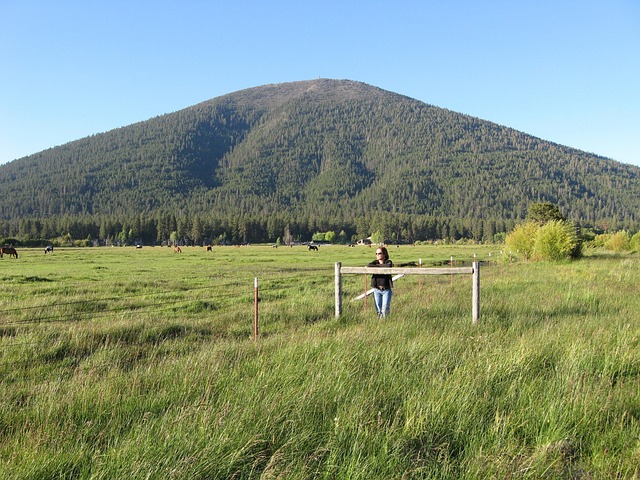Child welfare agencies in Oregon, collaborating closely with Oregon Child Protective Services (OCPS), play a multifaceted role in safeguarding vulnerable children and families. Suspecting child abuse or neglect requires reporting to DHS-CPS, starting with identifying indicators and followed by an assessment. Both parents and children have defined legal rights in CPS cases, emphasizing fairness, privacy, and the best interests of the child. CPS staff undergo rigorous training, adhering to high standards of care through ongoing education on best practices and legislation.
In Oregon, knowledgeable understanding of child welfare regulations is paramount for ensuring the safety and well-being of vulnerable children. This article delves into the intricacies of Oregon’s child welfare system, exploring key regulations and laws governing Child Protective Services (CPS). We dissect the roles and responsibilities of agencies involved, the process of reporting suspected abuse or neglect, legal rights for parents and children, and training requirements for professionals in CPS cases. Armed with this knowledge, folks can navigate Oregon’s child protective services effectively.
- Understanding Oregon's Child Welfare System: An Overview
- Key Regulations and Laws Governing Child Protective Services in Oregon
- Roles and Responsibilities of Child Welfare Agencies
- The Process of Reporting Suspected Child Abuse or Neglect
- Legal Rights of Children and Parents Involved in CPS Cases
- Training and Education Requirements for Professionals Working with CPS
Understanding Oregon's Child Welfare System: An Overview

Oregon’s child welfare system, overseen by Oregon Child Protective Services (OCPS), is designed to ensure the safety and well-being of children within the state. At its core, OCPS aims to prevent abuse and neglect, provide support to families in need, and offer necessary resources for children who cannot safely remain with their parents. This system involves a complex network of professionals, including social workers, case managers, and various community partners.
The Oregon child welfare regulations are extensive, covering everything from investigation procedures to foster care requirements. These guidelines are put in place to protect the rights of both children and families while ensuring that interventions are effective and beneficial. Understanding these regulations is crucial for anyone involved or interested in Oregon’s child protective services, enabling a better grasp of the support available and how to access it.
Key Regulations and Laws Governing Child Protective Services in Oregon

In Oregon, the Department of Human Services (DHS) is responsible for providing child protective services and ensuring the safety and well-being of children. The state has comprehensive regulations in place to govern the actions and decisions made by child welfare professionals. Key among these are the Oregon Child Protective Services (OCPS) rules, which outline procedures for reporting suspected abuse or neglect, investigation protocols, and criteria for removing a child from their home. These regulations emphasize a family-centered approach, aiming to preserve familial connections whenever possible while ensuring the child’s safety.
The OCPS laws also dictate the roles and responsibilities of various stakeholders, including caseworkers, court officials, and foster care providers. They set clear guidelines on when and how to intervene in situations involving potential harm to children, as well as the steps required for a safe return home or alternative permanency planning. Adherence to these regulations is crucial to maintaining consistency, fairness, and effectiveness in Oregon’s child protective services.
Roles and Responsibilities of Child Welfare Agencies

Child welfare agencies in Oregon play a pivotal role in protecting and supporting vulnerable children and families. Their primary responsibility is to ensure the safety, well-being, and stability of children who may be at risk or experiencing abuse, neglect, or family crisis. These agencies work closely with Oregon Child Protective Services (OCPS) to investigate reports of child abuse or neglect, conduct assessments, and determine the best course of action for each unique situation.
Agencies have a multifaceted role, including case management, providing direct services like therapy or parenting classes, coordinating with other social service organizations, and collaborating with schools and community resources. They are tasked with developing and implementing plans to help children and families regain stability and safety while also advocating for their rights. This involves regular case reviews, progress monitoring, and ensuring compliance with Oregon’s stringent child welfare regulations, all aimed at fostering a secure and nurturing environment for Oregon’s most vulnerable residents.
The Process of Reporting Suspected Child Abuse or Neglect

In Oregon, suspected child abuse or neglect should be reported to the Department of Human Services (DHS) Child Protective Services (CPS). The process begins with identifying potential indicators of abuse or neglect, such as physical harm, emotional maltreatment, sexual exploitation, or failure to meet a child’s basic needs. Once these signs are observed, individuals can file a report by contacting CPS directly or using the Oregon Child Abuse Hotline.
After receiving a report, Oregon CPS conducts an assessment to determine if there is sufficient cause for further investigation. This involves gathering information from various sources, including interviews with parents or guardians and direct observations of the child’s living conditions. If the assessment indicates reasonable suspicion of abuse or neglect, CPS will open a case and work to ensure the safety and well-being of the affected child.
Legal Rights of Children and Parents Involved in CPS Cases

Children and parents involved in Oregon Child Protective Services (CPS) cases have specific legal rights that must be respected throughout the process. These rights are designed to ensure fairness, protect privacy, and preserve the best interests of the child. Parents have the right to be informed about the case against them, to contest any allegations, and to participate actively in hearings and decisions regarding their children’s future. They can also request legal representation to help navigate the complex legal system.
Children, as involved parties, are entitled to privacy protections, including confidentiality of records and limitation of contact with those outside the case. They have the right to be heard in any court proceedings and to have a stable and supportive environment throughout the process. Both parents and children can expect to be treated with dignity and respect, and to have their cultural and linguistic needs addressed where applicable. Understanding these rights is crucial for anyone involved in an Oregon CPS case.
Training and Education Requirements for Professionals Working with CPS

Professionals working in Oregon’s Child Protective Services (CPS) are required to undergo rigorous training and education to ensure they have the knowledge and skills needed to protect and support vulnerable children and families. The state has established specific guidelines for staff, including social workers, therapists, and case managers, to maintain high standards of care. All employees must complete a comprehensive training program that covers various aspects of child welfare, such as child development, family dynamics, cultural competency, and legal procedures related to CPS.
The training often includes classroom instruction, practical workshops, and field placements to provide hands-on experience. Regular continuing education is also mandated to keep professionals updated on best practices, new research findings, and any legislative changes in Oregon’s child welfare laws. These requirements ensure that the team working with CPS is well-prepared to handle complex cases and deliver effective interventions for the benefit of children and their families.
